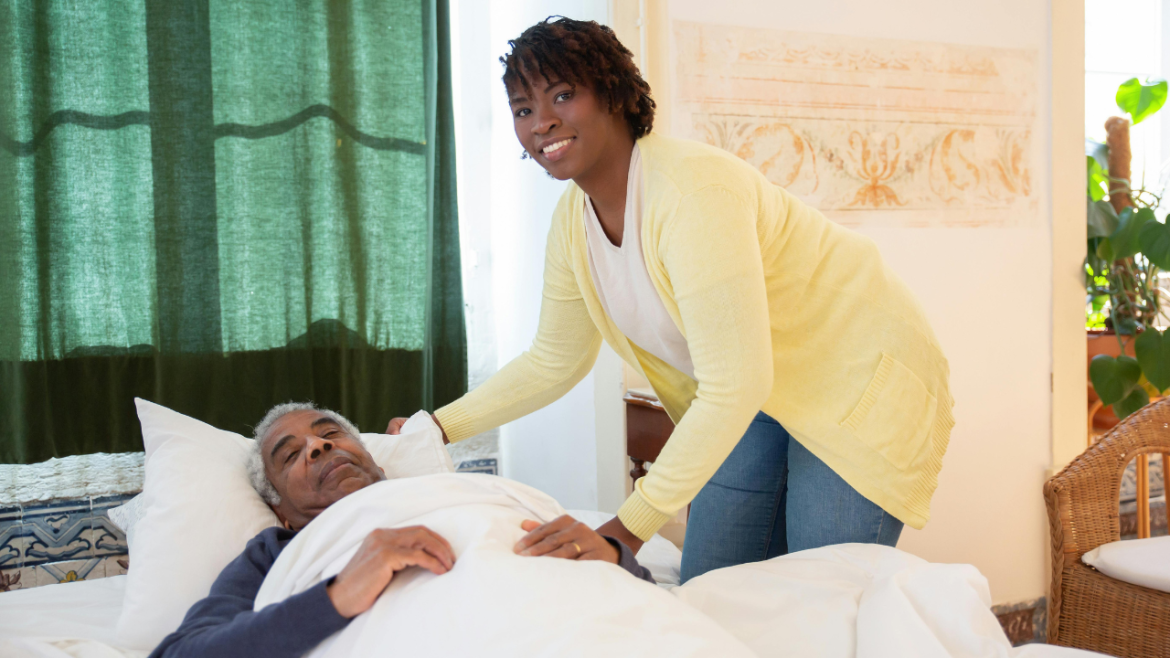Did you know that Leading Edge Senior Care has a Dementia Support Group? We meet monthly in Mesa. For more details <click here>
How To Care For Bed-Bound Seniors
Caring for bed-bound seniors requires patience, empathy, and specialized knowledge. This guide explores effective strategies and considerations for providing optimal care in this challenging situation.
Understanding Bed-Bound Seniors
Bed-bound seniors face unique challenges due to limited mobility, which can lead to physical discomfort and emotional distress. It’s crucial to understand their specific needs and preferences to ensure compassionate and effective care.
Creating a Comfortable Environment
Start by creating a comfortable and safe environment. Use supportive bedding and pillows to prevent pressure ulcers and ensure proper positioning to avoid muscle stiffness. Maintain a clean and organized space to promote well-being.
Assisting with Daily Activities
Help with daily activities such as bathing, grooming, and toileting. Use assistive devices and adaptive techniques to make these tasks easier and more dignified for seniors. Encourage independence whenever possible to boost their confidence.
Managing Medications and Health Monitoring
Stay organized with medications and follow prescribed treatment plans. Monitor vital signs regularly and report any changes or concerns to healthcare professionals promptly. Addressing health issues proactively is crucial for overall well-being.
Providing Emotional Support
Emotional support is essential for bed-bound seniors. Engage in meaningful conversations, listen actively, and offer companionship to combat feelings of loneliness and isolation. Encourage participation in hobbies or activities they enjoy.
Nutrition and Hydration
Ensure seniors receive nutritious meals and stay hydrated. Consider their dietary preferences and restrictions, and consult with a nutritionist if needed. Monitor intake and address any appetite changes or swallowing difficulties promptly.
Preventing Complications
Take preventive measures to avoid common complications such as pressure ulcers, urinary tract infections, and muscle atrophy. Rotate positions regularly, perform gentle exercises, and use appropriate skin care products.
Communication with Healthcare Providers
Maintain open communication with healthcare providers to address any medical concerns promptly. Attend regular check-ups and follow-up appointments to monitor health status and adjust care plans as needed.
Conclusion
Caring for bed-bound seniors requires a holistic approach that encompasses physical, emotional, and social aspects. By understanding their needs, providing compassionate care, and collaborating with healthcare professionals, you can enhance their quality of life and well-being significantly.

